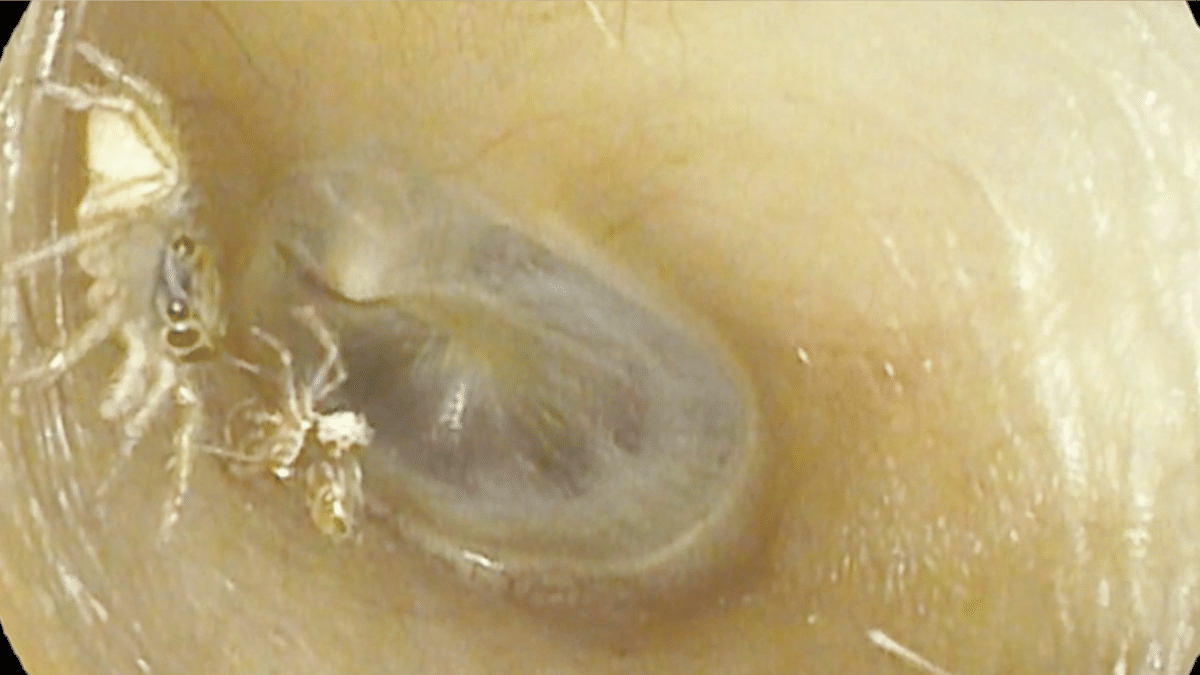- By Poorva Karki
- Fri, 27 Oct 2023 03:37 PM (IST)
- Source:JND
The very idea of a living creature living inside or on your body is enough to make one lose their mind, so imagine the kind of horror this 64-year-old lady hailing from Taiwan must have experienced after she got to know about an unexpected guest living inside her ear. The symptoms began with the woman, whose name is not disclosed, experiencing weird clicking sounds in her left ear. The ‘clicking and rustling’ sound went on for four days, after which the woman decided to get it checked by a doctor, according to MedPage Today. When the doctor took a look at the lady’s issue, to everyone’s surprise, a spider along with its shed exoskeleton was found chilling inside her ear.
Opening up on the matter, Tainan Municipal Hospital’s Liyin Weng and Tengchin Wang in Taiwan’s Tainan called the case new as no incidents of insects ‘molting inside the ear canal’ were found before. “There are reports of ants, moths, cockroaches, and mosquitoes running into the ear canal, but there seems to be no mention of insects molting inside the ear canal,” Wang was quoted as saying to MedPage Today. The woman was reportedly not able to sleep for four days until the spider was living inside her ear. Identifying the culprit as Hasarius adansoni, Wang called the spider ‘common’ in Taiwan during his conversation with MedPage Today. He further revealed that the said spider likes to ‘mold in dark environment’, which led him to assume it as the possible reason behind the spider sheltering inside the woman’s ear. "It likes to molt in a dark environment, so I guess that's how it probably hides in human ears at night, then molts,” hewas further quoted as saying to MedPage Today in an email.
ALSO READ: Girl Annoys Dogs On Beach Day Out; What Happened Next Left Netizens Satisfied | Viral Video
Rushing to action after the bizarre discovery, the doctor reportedly used a suction device to remove the spider and its shed skin without harming the woman’s ear. The peculiar case that reportedly took place in April, was revealed by the New England Journal of Medicine.

